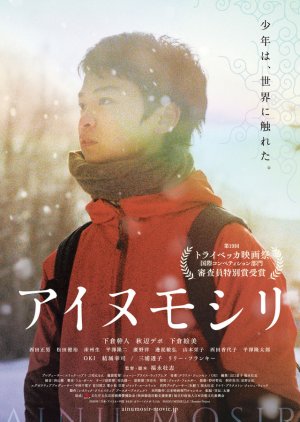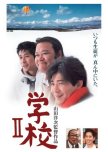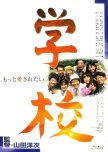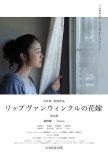
Beautifully shot and quietly observed coming of age drama.
Kanto is an Ainu teenager living in a small tourist town of Japan’s northern Island, Hokkaido. Still struggling with his father's death one year prior, he's eager to leave behind the rural and isolated town he grew up in. When the village elder Debo tries to educate Kanto in Ainu traditions, two ways of living collide.The Ainu are an ethnic group indigenous to northern Japan. Through the film the viewer gets to experience several Ainu traditions such as dances, music, rituals and feasts. It also shows different generations struggling with their identity and doesn't shy away from social commentary. My favorite being the moment a tourist compliments Kanto's mother, a fellow Japanese, on her Japanese skills. The irony of that hits pretty hard.
Nature plays a huge part in the life of the Ainu, so it felt only natural that it was a big part of the movie as well.
It offers an abundance of gorgeous shots of deep, green forests, beautiful seashores and the rural town. The changing seasons as well as the long and calming shots give the movie an incredibly relaxing atmosphere.
This felt like taking a relaxing walk through a beautiful landscape.
With its documentary style, 'Ainu Mosir' quietly observes younger and older Ainu generations trying to find their place in our modern times. Never judging but simply exploring their day-to-day life. Paired with the convincing performances of the non-professional Ainu actors, this makes for a compelling, grounded and authentic watch.
Was this review helpful to you?

Silently Beautiful
This film has been on my radar for a while and I'm so glad I got to watch it.Ainu Mosir is a coming of age story, not just for the main character Kanto, but almost also for the people in the town.
We see the townspeople trying to balance between preserving their culture and getting by in modern Japan.
I really enjoyed the scenes with Kanto's mother in them.
I think she was a really good personification of this struggle for balance.
I want to especially point out the use of sound.
This was so beautifully done in my opinion.
I've marked this under music but it's isn't really music, but rather the background sounds you can hear.
There are quite a few scenes were you lean in (metaphorically and physically) to hear the tranquil sounds of nature.
It's beautiful, breathtaking, and also sometimes sad.
I thought this was a really nice way to contrast between the sounds we hear in the town; repetitive announcements that feel disruptive, but have been accepted as a part of everyday life.
While the story is about Ainu culture, I think many people will be able to relate with the idea of balancing different 'identities'.
Was this review helpful to you?

A perpetual coming of age
Honestly, I'm still not 100% sold on whether one can really call Ainu Mosir a coming-of-age film. It follows teen Kanto as they try to figure out their Ainu identity. Yet, I would argue, this has very little to do with the childhood-to-adult convention of usual coming-of-age stories. Or, perhaps, that the age distinction is simply irrelevant.Kanto is far from the only one in the Ainu village community who is struggling with their identity. Debo, for an adult example, struggles in his own way with his Ainu identity, He expresses his uncertainty even as he tries to impress on Kanto the importance of being Ainu. Arguably, Debo too is undergoing a coming-of-age process.
What this film does well is sit in discomfort. I agree with JennyStuckOnThatRooftop's review in that I believe this film refrains from "judging". However, I don't think it's offering social commentary per se. It's more observational in its style and while there is certainly deliberate framing at play, I wouldn't go as far to say that's it editorialising. Instead, it allows for messy nuances and seeming contradictions to unravel on screen.
Sure, it's a quiet film as far as dialogue is concerned. But I found it noisy viewing: you can clearly hear the characters' thoughts among the rainfall or the crunch of snow. No one seems to really know their place in the world but they exist regardless.
Was this review helpful to you?







































